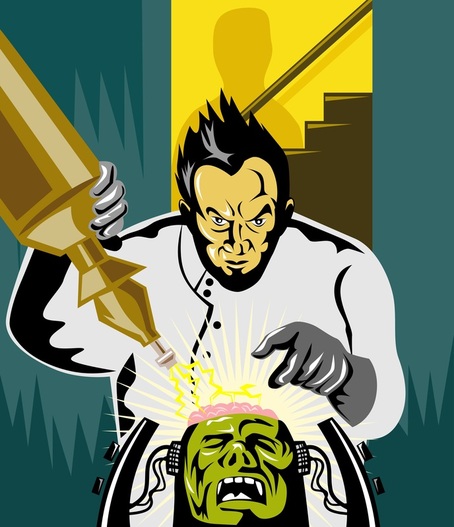Master Your Brain
It’s lighting quick, and can hold limitless amounts of information.
As much as people are hyping up science and computers and artificial intelligence, nothing comes close to the computational power between your ears.
One thing that makes it so incredible is its amazing efficiency.
It knows when to conserve resources, and when to go “all in.”
For example, scientists tell us that much of what we “see” out there is really generated “in here.”
Meaning our brain does a quick check of our environment, notices it’s pretty similar to things its seen before, and then calls up it’s “brain cache” or its pre-recorded information.
For example, once I was driving down the freeway, and saw a pickup truck a hundred meters or so ahead. There was a dog in the back.
Then, when I got right up next to it, I looked over, expecting to see a dog, but instead saw a pig. (He was looking right at me with a “what are you looking at” expression).
I almost drove off the road!
What happened was my brain saw a pickup truck with a four legged animal in the back. It decided the accuracy of the situation wasn’t crucial, so it looked in the back of my brain for all my memories of four legged animals in the back of pickup trucks, and came back with a bunch of dogs.
So I saw a dog.
Only it wasn’t a dog, it was a pig.
Now, had the situation been important, and I was actively looking for something (like I needed to find a pig to keep a bomb from destroying the Earth or something) I would have seen the pig straight away.
On the other hand, had I been nearly eaten to death by a gang of hungry pigs as a child, I DEFINITELY would have seen the pig. Not only that, but I would have gotten a HUGE negative emotion because of it that told me to stay the heck away from pigs!
So what we “see” out in the world is HUGELY dependent on what we’ve ALREADY got stored in our brains.
We can see things, events, situations, people, you name it. And depending on how we interacted with those same things before, we can get positive, neutral or negative feelings.
Most people think that once those memories are there, you can’t change them.
Like if you get nervous when talking to attractive people, you may think you’ll simply ALWAYS be nervous talking to attractive people.
But it doesn’t have to be that way.
All you’ve got to do is change how you access your memories.
Notice what filters your brain is putting up between you, and the world.
And change them.

